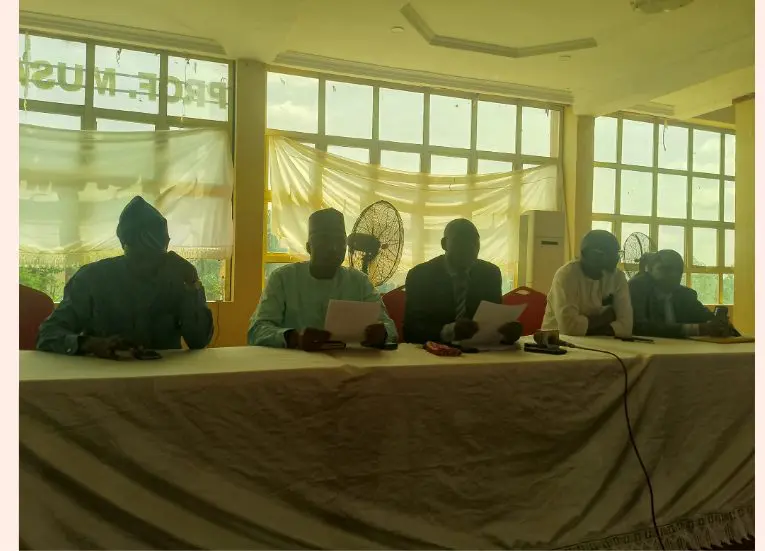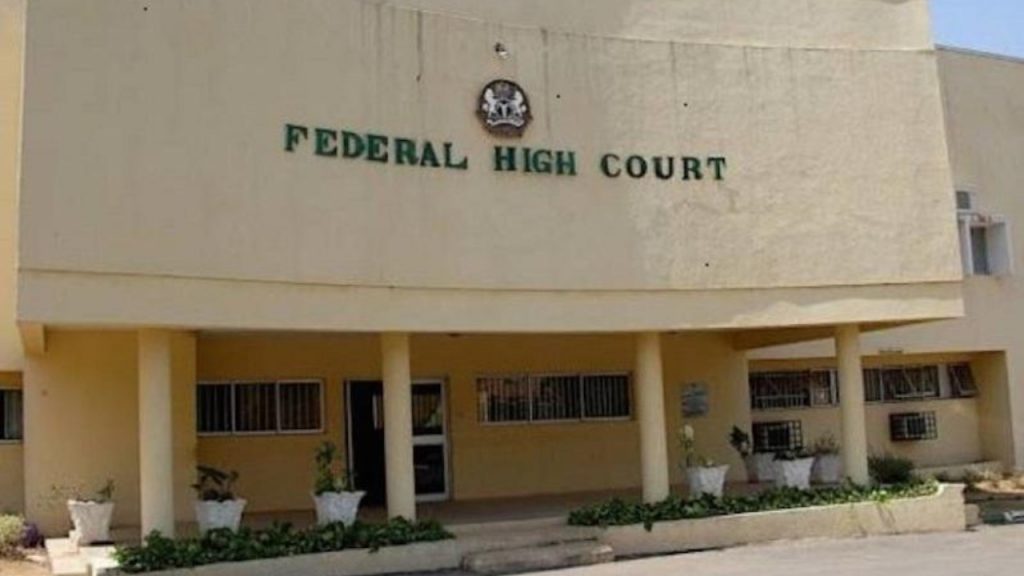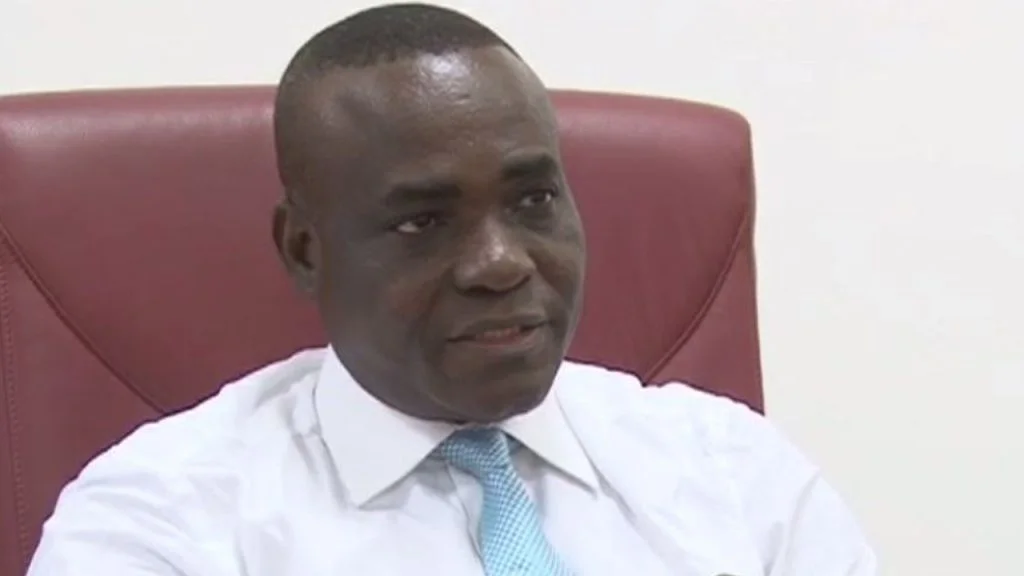News
Interior minister, Tunji-Ojo test runs e-gates at Abuja airport

The Minister of Interior, Olubunmi Tunji-Ojo has tested the electronic gates (e-gates) mounted at the Nnamdi Azikiwe International Airport, Abuja.
While inspecting the facilities on Friday, the minister said the installation is 99 per cent completed, adding that the e-gates would be deployed for operations by next week.
Addressing the media, the minister said the e-gates were being deployed to eliminate human interfaces, reduce bureaucracy and make movement of passengers in and out the country seamless.
According to him, 29 of the e-gates would be deployed in Lagos, four in Enugu and Kano while Port-Harcourt would have five.
DAILY POST reports that the e-gates are equipped with modern facilities required to scan passengers coming into the country via the airports without the usual delay.
The minister said that the Airport Infrastructure and Command and Control Centres have been subjected to different tests with fake and expired passports rejected while genuine ones were cleared.
“With this massive infrastructure, we believe that no unwanted persons or persons of interests can find their ways into Nigeria.
“Our security through the airports and in the airport domains are guaranteed.
“It is a testimony to what Mr President told us from day one on his Renewed Hope Agenda. He asked us to change the narratives and make passengers movements in and out of the country seamless,” he said.
Tunji-Ojo further stated that the era of unnecessary delays for passengers who come into the country due to manual scanning by Immigration officers would be a thing of the past by the time e-gates become functional.
The minister spoke of the need for the country to add another layer to its national security architecture by having about two or three licence verifications.
According to him, the additional licence verifications would enable relevant government agencies to easily flag persons of interest, or those on the watch list.
CREDIT: DAILY POST
News
Nigeria s 1999 Constitution full of flaws – Muslim lawyers association

The Muslim Lawyers Association of Nigeria, MULAN, has declared that there are many defects and flaws in the current 1999 Constitution of the Federal Republic of Nigeria.
MULAN National President, Dr Kazeem Olajide Olaniyan, made this declaration while addressing a press conference to herald the 15th annual general conference of the association on Thursday in Ibadan, the Oyo State capital.
Olaniyan stressed that Nigeria needs a homegrown Constitution that will address the current challenges facing the country.

According to him, the 1999 Constitution was drafted during the military rule and has many defects and flaws.
He noted that a homegrown will address the current problems the country is facing.
Olaniyan while speaking further, maintained that the theme of the conference, ‘National Development: The new dynamics and nuances’, was chosen so as to provide solutions to the country’s problems.
He also used the medium to appeal to the government to address the issue of fuel scarcity, food crisis and inflation in the country.
“Any Constitution Nigeria must have must be homegrown. What we have now was drafted by the military.
“There are so many defects and flaws in the 1999 constitution.
“Removal of subsidy of petroleum has effect on all of us coupled with inflation. We are now experiencing fuel scarcity.
“As we speak, if we are blaming the government, there are so many things we as people are also causing. We are also calling on the government to address the problem of food insecurity.”
News
Court adjourns trial in Nigerian Govt versus Ali Bello, others to May 27

Senator Ita Enang, former Special Adviser to the President on National Assembly Matters, attributed the failure of the Nigerian economy, the escalating debt burden, and the depreciation of the national currency, the naira, to the National Assembly. Enang made these remarks during the public unveiling of Oversight Magazine, a publication dedicated to covering parliamentary events, by former House of Representatives member Aniekan Umannah.
Enang asserted that the National Assembly’s inability to pose pertinent inquiries was accountable for the economic challenges. Having chaired both the House and Senate Committees on Rules and Business, Enang criticized the chambers for never releasing reports on their oversight duties as required, nor for questioning the nation’s debt.
He highlighted that while lawmakers frequently conduct oversight visits to scrutinize the activities of Ministries, Departments, and Agencies, they neglect to present their findings for deliberation on the parliamentary floor. According to him, the executive’s suboptimal performance, at both state and national levels, can be attributed to the deficient oversight of the National Assembly and state Houses of Assembly nationwide.
Enang emphasized the importance of the oversight function, stating that it allows for monitoring the utilization of budget allocations, assessing project progress, and planning future budgets accordingly. He concluded that the failure of the Nigerian economy, the devaluation of the naira, and the excessive debt accumulation are ultimately the responsibility of the National Assembly.
News
NASS responsible for failure of Nigeria’s economy, rising debt – Ita Enang

Senator Ita Enang, former Special Adviser to the President on National Assembly Matters, attributed the failure of the Nigerian economy, the escalating debt burden, and the depreciation of the national currency, the naira, to the National Assembly. Enang made these remarks during the public unveiling of Oversight Magazine, a publication dedicated to covering parliamentary events, by former House of Representatives member Aniekan Umannah.
Enang asserted that the National Assembly’s inability to pose pertinent inquiries was accountable for the economic challenges. Having chaired both the House and Senate Committees on Rules and Business, Enang criticized the chambers for never releasing reports on their oversight duties as required, nor for questioning the nation’s debt.
He highlighted that while lawmakers frequently conduct oversight visits to scrutinize the activities of Ministries, Departments, and Agencies, they neglect to present their findings for deliberation on the parliamentary floor. According to him, the executive’s suboptimal performance, at both state and national levels, can be attributed to the deficient oversight of the National Assembly and state Houses of Assembly nationwide.
Enang emphasized the importance of the oversight function, stating that it allows for monitoring the utilization of budget allocations, assessing project progress, and planning future budgets accordingly. He concluded that the failure of the Nigerian economy, the devaluation of the naira, and the excessive debt accumulation are ultimately the responsibility of the National Assembly.
-

 World News7 months ago
World News7 months agoWhat we know about Israel’s war with Hamas
-

 Sports7 months ago
Sports7 months agoLaLiga: Everyone want to play with him – Vinicius on player Real Madrid should sign
-

 World News7 months ago
World News7 months agoIran calls on Islamic, Arab countries to confront Israel
-

 Tech7 months ago
Tech7 months agoTop 10 AI Skills to Learn in 2023
-

 Entertainment7 months ago
Entertainment7 months agoBET Hip-Hop Awards: Black Sherif wins big as Burna Boy loses seven nominations
-

 Entertainment7 months ago
Entertainment7 months ago‘Black Panther’ star Lupita Nyong’o breaks up with boyfriend, Selema Masekela
-

 ICT8 months ago
ICT8 months agoApple Bows To EU, Unveils iPhone With USB-C Charger
-

 World News7 months ago
World News7 months agoZelensky seeks defences for winter on visit to NATO




